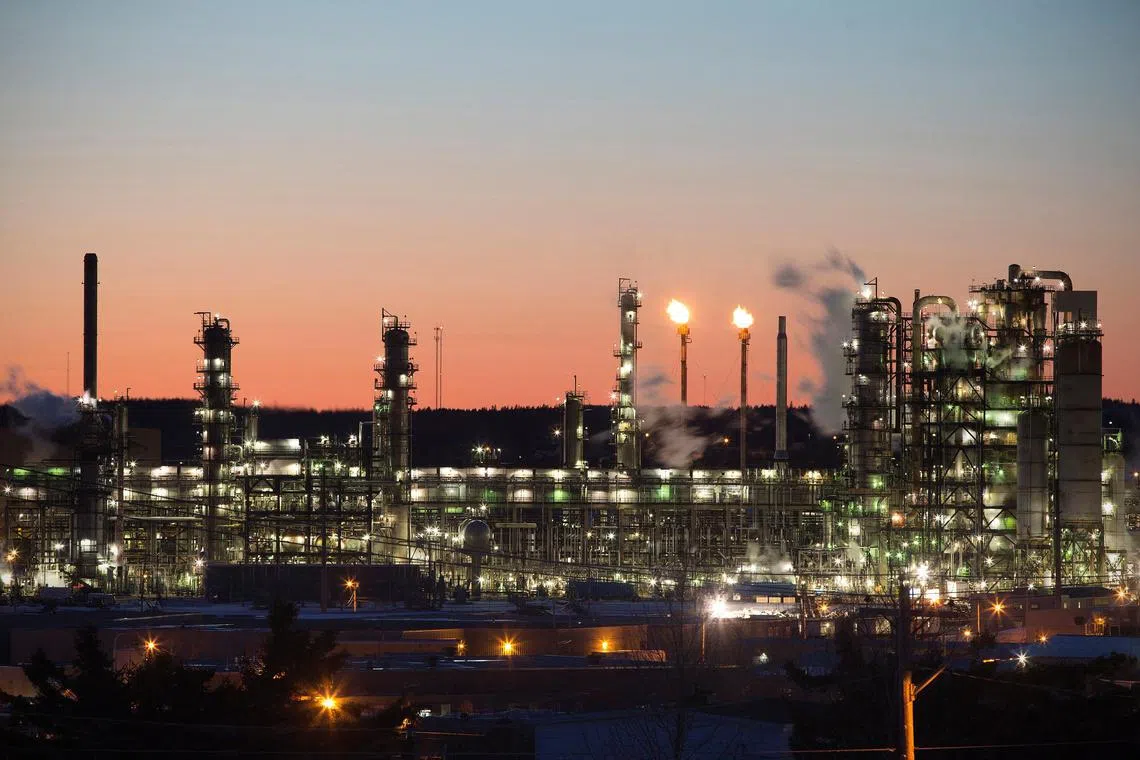Canada releases framework to ban inefficient fossil fuel subsidies
Sign up now: Get ST's newsletters delivered to your inbox

Ottawa plans to release a framework to phase out public financing of fossil fuel projects within the next year.
PHOTO: REUTERS
OTTAWA – Canada on Monday released a framework for eliminating inefficient fossil fuel subsidies, making it the first Group of 20 country to deliver on a 2009 commitment to rationalise and phase out government support for the sector.
Climate policy analysts said the framework was an important step forward, but fell short by continuing to allow government support for oil and gas projects that plan to reduce emissions through technologies such as carbon capture and storage (CCS).
The framework will apply to existing tax measures and 129 non-tax measures, but Ottawa will not cancel any ongoing multi-year subsidy agreements that are already in place.
The government has not put a dollar value on the subsidies affected, or published an inventory of exactly which subsidies are included.
“This ensures that the only federal support for oil and gas goes to projects that decarbonise the sector and result in significant greenhouse gas emissions reductions,” Environment Minister Steven Guilbeault told a press conference.
Fossil fuel actives will be exempt from the framework if they fall into one of six categories: enabling significant carbon emissions reductions, supporting clean energy, providing essential energy to a remote community or short-term support for an emergency response, supporting Indigenous participation in fossil fuel activities or projects that have a credible plan to reach net zero by 2030.
Eliminating fossil fuel subsidies is part of a 2022 deal signed between Prime Minister Justin Trudeau’s minority Liberal Party and the New Democratic Party (NDP), formalising NDP support for the government.
The NDP Critic for Climate Change and Environment Laurel Collins said the new rules did not go far enough.
“While we know that we had to fight like hell to get the Liberals where they are today, it is clear that this announcement doesn’t meet the urgency of the moment when climate disasters are putting everything we value at risk,” Ms Collins said.
Carbon capture and storage ‘loopholes’
Ms Laura Cameron, policy adviser for the International Institute for Sustainable Development, praised the framework for using the internationally recognised World Trade Organisation definition of a subsidy, but criticised continuing support for oil and gas projects planning to build CCS.
Canada, the world’s fourth-largest oil producer, expects the technology to play a major role in decarbonising the industry and in 2022 announced a CCS investment tax credit.
The Pathways Alliance, a collaboration between Canada’s six largest oil sands producers, is planning to develop a C$16.5 billion (S$16.7 billion) CCS hub in northern Alberta. Pathways president Kendall Dilling said in a statement that the organisation was pleased the framework recognised the need for government partnership on its project.
Climate campaigners Environmental Defence also criticised the framework for not applying to public financing of fossil fuel projects through government-owned crown corporations, such as the loan guarantees for the C$30.9 billion Trans Mountain pipeline expansion project.
Ottawa plans to release a framework to phase out public financing of fossil fuel projects within the next year.
“The government of Canada must quickly take the final step and end all fossil financing – without any loopholes for fossil gas, fossil hydrogen or CCS,” Ms Jula Levin, programme manager for the Environmental Defence organisation, said in a statement. REUTERS


